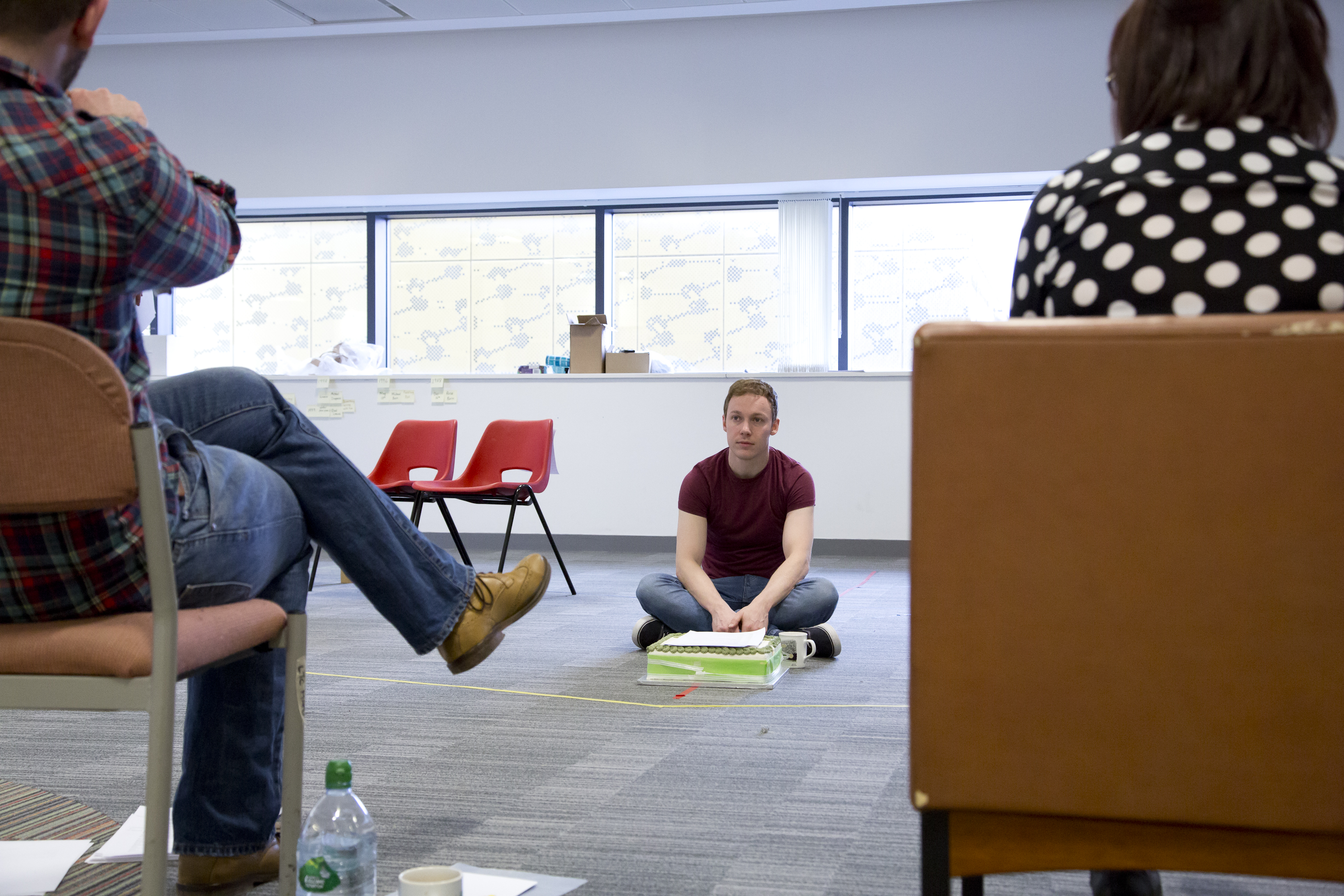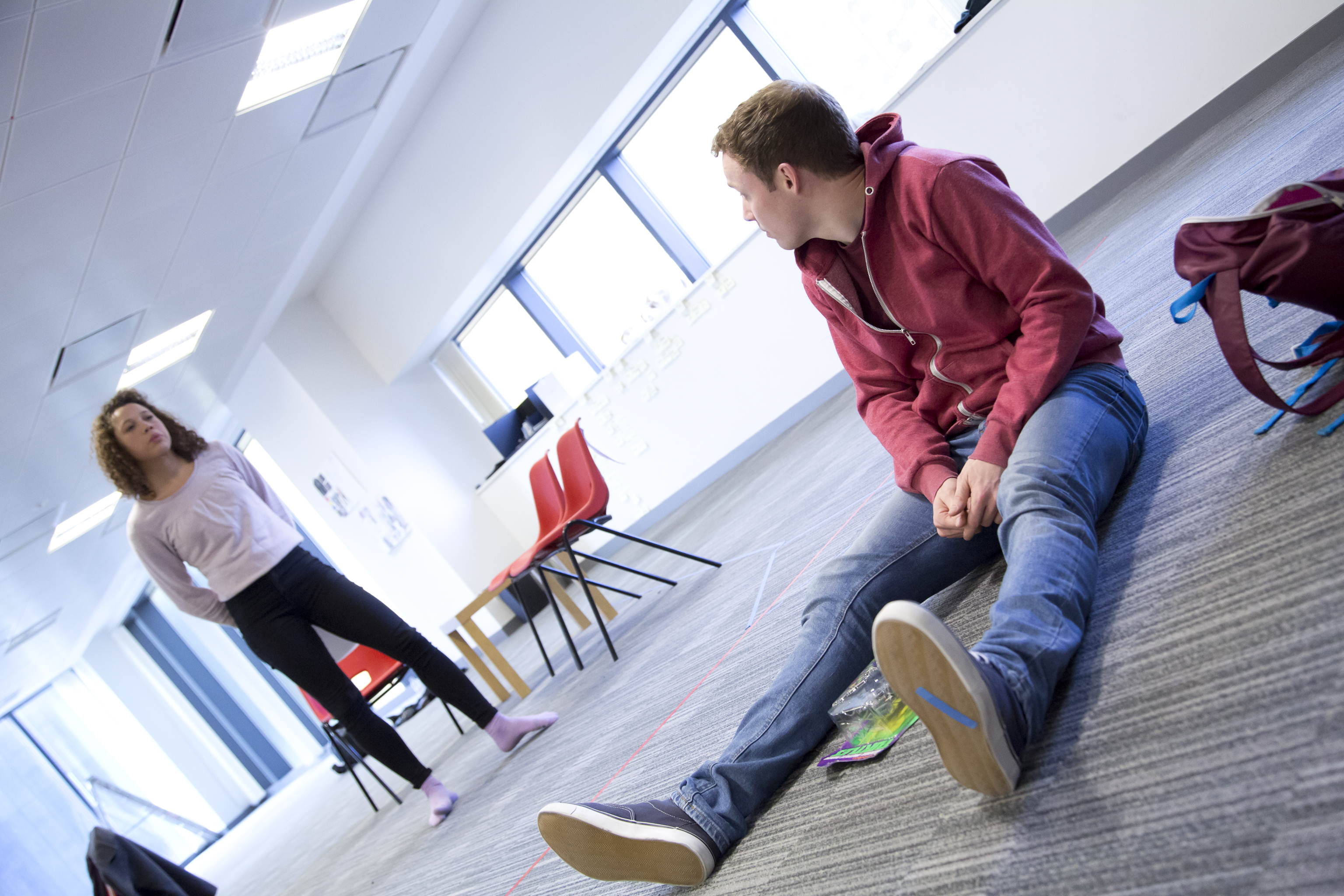LUCY SILVER reviews ‘Plastic Figurines’ by Ella Carmen Greenhill, at the New Diorama Theatre.
‘Plastic Figurines’ is a close, personal drama that explores the dynamics of the sibling relationship between neurotypical Rose (Remmie Milner), and her younger brother Mikey (Jamie Samuel) who has an autistic spectrum condition (ASC).
The drama takes place between two people operating on very different language registers, revealing both the humour and difficulty that can arise when speech is taken literally and the nuances of communication are lost. ‘Plastic Figurines’ reminds us that the basis of comedy is misunderstanding, and such misunderstanding is a fundamental part of communication, and occurs frequently between neurotypicals and individuals with ASCs.
When Rose raises the possibility of playing a game, Mikey fervently objects on the grounds that he refuses to play Cluedo with people who ‘cheat’, or lie about their hand in order to advance their search. Through this kitchen table example, the play demonstrates how what can be regarded as fundamental dishonesty, takes place in a lot of ‘normal’ interpersonal interactions.
Somewhat under explored in drama and under discussed in life, the sibling relationship in ‘Plastic Figurines’ is, for the most part, sensitively and intelligently presented. Milner’s portrayal of Rose reveals the complexities of the sibling relationship as she struggles with feelings of guilt, frustration and the powerful protective instinct she feels for her brother.
The play’s title comes from Mikey’s obsessive need to order his figurines in lines, and Rose’s admission that in her childhood she would sneak into his room and ‘mess the line up’ to provoke a reaction. Rose’s need to bring Mikey’s sense of order in line with the nature of reality resurfaces in adult life when she loses her composure and tries to make her brother realise that his ‘friends’ are in fact manipulating and abusing him. In this way, ‘Plastic Figurines’ reaffirms that our relationships with our siblings can bring us closest to our childhood selves, revealing truths about our adult identities.
Taking a step back from the Mikey/Rose dynamic, ‘Plastic Figurines’ also hints at the impact of bringing up a child with special needs can have on the family unit: the play ise set in the aftermath of the death of the siblings’ mother, making the noticeable absence of their father all the more poignant. ‘Plastic Figurines’ relates the very real issues of the on going lack of support for families of individuals with ASCs and the long-term implications of this lack of support.
‘Plastic Figurines’ identifies and illustrates moments from a complex relationship and translates them into dramatic terms, evoking both pathos and humour in equal measure.
Images courtesy of Lucas Smith Photography.






